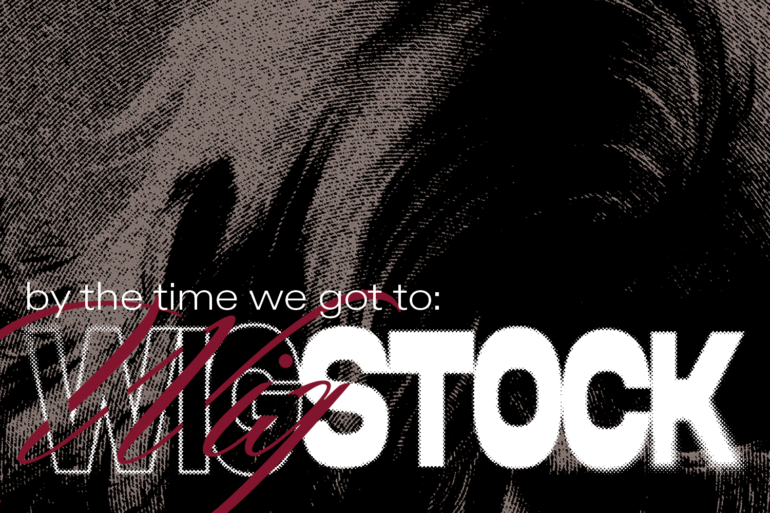Unless you’ve been living under an incredibly drab and rhinestone-less rock, you’ve heard of RuPaul’s Drag Race. But for many of us, this is where our knowledge of drag starts and ends. I find that to be completely unacceptable. The history of drag is deeply intertwined in centuries of queer (and Greek) culture, but trying to divulge it all would take closer to a novel than an article.
Allow me to set the scene: it’s 1984 and iconic drag queen Lady Bunny and a few of her eclectic friends stumble out of East Village’s Pyramid Club. With nothing else to do, the motley crew makes their way to Tompkins Square Park and decide to put on an impromptu show. Bunny jokingly calls their performance “Wigstock”, clearly as a play on the 1969 festival “Woodstock”. As silly as the idea sounded, Bunny decided it may be one worth pursuing.
Due to Bunny’s persistence, she acquired the permits necessary to host the first official “Wigstock” festival in Tompkins Square Park, 1985. The one-day festival was peak camp buffoonery in its early years, taking its parody status extremely seriously. With “Woodstock” by Joni Mitchell on the cover setlist, the festival was full of live music, lip-syncing, performance art, and any other act a person in a wig thought would be entertaining. From this era birthed the 20-minute documentary Wigstock: The Movie (not to be confused with the full length film Wigstock: The Movie made in 1995). The original 1987 documentary captures the free spirited energy of the festival, and is suspiciously reminiscent of the 1970 documentary Woodstock.
But all good (albeit polarizing) things must be paired with a bit of retaliation. For “Wigstock”, it came in the form of Rudy Giuliani. During the 1990’s, Giuliani feared the festival was too large of a display of grassroots organizing and kicked them out of the park, but Lady Bunny would be damned if she let that stop this growing phenomenon. The festival picked up and moved to Pier 17, where it continued to grow and prosper. What was once a small parody of an iconic hippie festival became an event that garnered the attendance of LGBTQ+ individuals from across the country. It was an unapologetic display of queerness and weirdness that was not at all widespread during that time period. There were celebrity appearances from Debbie Harry to RuPaul, a lifelong friend of Lady Bunny.
While the festival was created for a niche group, the mainstream media still made sure to say their piece. A 1995 New York Times article describes the event and its 1995 movie as, “…good-natured, campy fun”. The general public was becoming just as intrigued as they were confused, and that was perhaps a step in the right direction.
Unfortunately, due to the extreme amount of resources required to keep the festival running, Lady Bunny announced the 2001 Wigstock” would be the last. Well, kind of. The festival changed shape once more from 2003-2005, operating inside of the “Howl Festival” which ironically was held back in Tompkins Square Park. After a few years, it was official. Wigstock took its final bow. That was until Neil Patrick Harris and his partner David Burtka decided it needed one more go in 2018. The festival consisted of over 50 drag acts including the talents of Bianca Del Rio, Lypsinka, Joey Arias, Justin Vivian Bond, Murray Hill, Sherry Vine and Amanda Lepore. All of them were wrangled by the one and only: Lady Bunny. The event-located once again at Pier 17 and ran into the wee hours of the night.
The magic of Wigstock has most recently been captured through the 2019 documentary Wig, which was co-produced by aforementioned David Burtka, but the festival has made an undeniable mark on queer history that will last for decades to come. It came when the LGBTQ+ community needed it most. During the AIDS crisis it seemed all hope was lost for the queer community, but Wigstock was able to transcend all of the sadness and provide one liberating day for all who were suffering so deeply. And for that, Wigstock, I say thank you.
Words by Fay Marks.
Graphic by Reem Hinedi.

